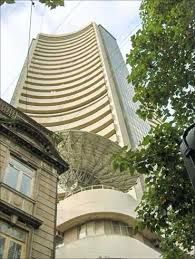 Asia’s oldest bourse Bombay Stock Exchange, which has been losing market share to the National Stock Exchange for the past few years, is banking on its new technology that has reduced response time of orders to gain market share, and is gearing up for an initial public offering by end of 2014.
Asia’s oldest bourse Bombay Stock Exchange, which has been losing market share to the National Stock Exchange for the past few years, is banking on its new technology that has reduced response time of orders to gain market share, and is gearing up for an initial public offering by end of 2014.
“An IPO could not happen as regulatory clearances have been taking time.
“We need two approvals form regulators.
“We hope to dilute either 10 per cent or 25 per cent, depending on how many shareholders would like to exit.
“We hope to complete the IPO by end of 2014,” said Ashish kumar Chauhan, managing director and CEO of BSE.
BSE has brought in the new technology from Deutsche Bourse.
During the past few years, Chauhan said, NSE had been executing orders about 10 times faster than BSE.
Over the past few years, BSE has increased the order execution time to 10 milliseconds from 300 milliseconds.
And, with the new technology, BSE would be able to bring the response time down from around 10 milliseconds to 100 micro seconds over the next few months, added Chauhan.
“The new system is now 50 times faster and has also brought down cost of operations. This would slowly bring back more traders on BSE platform,” he said.
According to the top executive of the bourse, while trading volume is higher at NSE, delivery has always been much higher at BSE.
In trading, BSE has a market share of just about 14-15 per cent, but in delivery, Chauhan said, its market share was about 35-40 per cent.
At present, BSE has about 5,300 stocks, while NSE has about 1,600.
To increase market share, BSE has opened new segments for trading, including offer for sale, trading in small and medium enterprises, mutual fund distribution, e-IPOs
“We have also started incentivising brokers to bring retail clients to BSE and have products to cater to players in all segments, from retail to foreign institutional investors.
“The exchange has put its muscle behind its marketing, sales and distribution network,” said Chauhan.
Through its joint ventures with Deutsche Bourse and Morning Star, BSE also sells data globally.
“In the new segments, which we call Blue Ocean, we are market leaders, and have monopoly in most of these.
“The old segments like pure equities, which we call Red Ocean, we are lagging behind.
“Like in SMEs, we have 56 SMEs listed and we have a dominant 95 per cent market share.
“But, in equities, we have just about 26 per cent market share.
“The derivative market share of BSE has risen from nil to 22-25 per cent.
“However, we are gaining our market share slowly,” said Chauhan.
BSE also has a joint venture with S&P. S&P creates indices, markets them and manages them.
Also, S&P was likely to bring a lot of its back office jobs to this JV over a period of time, he added.
However, most of BSE’s revenue still comes from retail traders.
About 10 per cent of revenue came from institutions, about 25 per cent from Algorithmic trading, and the rest still came from retail traders, said Chauhan.
On an average, BSE processes about five-six lakh orders every minute.
However, as lot size has been reduced to just one unit, per trade volume and value have also come down drastically in the past few years.











